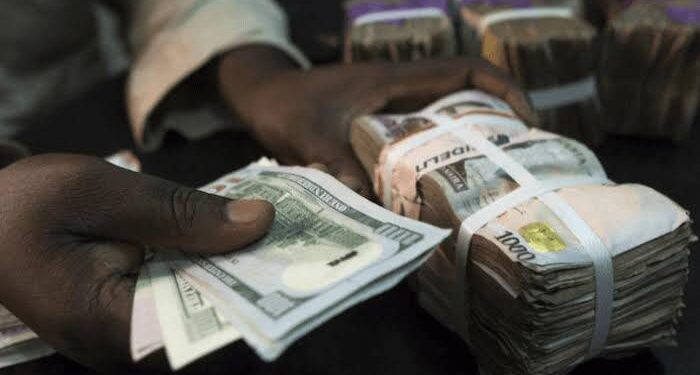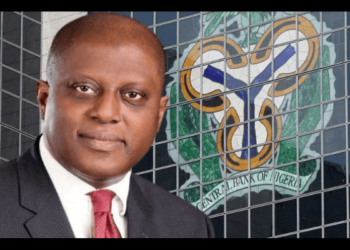The Economic and Financial Crimes Commission (EFCC), has prohibited foreign missions based in Nigeria to stop transacting in foreign currencies for goods and services in the country.
The EFCC further directed Nigerian foreign missions located overseas to incorporate Naira into their financial operations.
According to EFFC is to tackle the dollarisation of the Nigerian economy and the degradation of the naira.
The anti-graft commission, in an advisory to the Minister of Foreign Affairs, Ambassador Yusuf Tuggar, titled: “EFCC Advisory to Foreign Missions against Invoicing in US Dollar,” expressed reservations and displeasure “regarding the unhealthy practice by some foreign missions to invoice consular services to Nigerians and other foreign nationals in the country in United States dollar(s).”
In the memo dated May 5, 2024, the EFCC chair made it clear that it was illegal for any foreign mission to collect any currency apart from Naira in Nigeria.
The EFCC cited Section 20(1) of the Central Bank of Nigeria Act, 2007, which makes currencies issued by the apex bank the only legal tender in Nigeria.
Part of the memo reads: “I present to you the compliments of the Economic and Financial Crimes Commission, EFCC, and wish to notify you about the Commission’s observation, with dismay, regarding the unhealthy practice by some foreign Missions to invoice consular services to Nigerians and other foreign nationals in the country in United States Dollar.
“This practice is an aberration and unlawful as it conflicts with extant laws and financial regulations in Nigeria. Section 20(1) of the Central Bank of Nigeria Act, 2007 makes currencies issued by the apex bank the only legal tender in Nigeria.
“It states that ‘the currency notes issued by the Bank shall be the legal tender in Nigeria on their face value for the payment of any amount’.
“This presupposes that any transaction in currencies other than the naira anywhere in Nigeria contravenes the law and is, therefore, illegal.”
READ MORE: Dr Arikana, Enabulele, Others Team Up For Ubuntu Awakening Summit
The commission further stated that the act of certain missions declining the naira as payment for consular services in Nigeria, and disregarding the foreign exchange regulations in determining the cost of their services, is not only unlawful but also undermines the country’s sovereignty, as reflected by its national currency.
Such a situation, EFCC added, undermines Nigeria’s monetary policy and aspiration for sustainable economic development.
The letter continued, “This trend can no longer be tolerated, especially in a volatile economic environment where the country’s macroeconomic policies are constantly under attack by all manner of state and non-state actors.
“In light of the above, you may wish to convey the commission’s displeasure to all missions in Nigeria and restate Nigeria’s desire for their operations not to conflict with extant laws and regulations in the country.”
More
Meanwhile, the EFCC had resumed raiding in a bid to stabilize the naira.
Operatives of the EFCC had on Tuesday arrested some Bureau De Change operators at the popular Wuse Zone 4 market in the Federal Capital Territory, Abuja.
However, traders also said some BDC operators resisted the arrest during a sting operation.
The operatives had embarked on routine raids to sanitize the market of street traders and eliminate arbitrary trading.
But this move was resisted on Tuesday, leading to gunshots and damage to the operatives’ vehicles.
Penultimate week, the commission arrested over 35 suspected currency speculators for alleged foreign exchange fraud.
EFCC warns Nigerians
Before the EFCC made a move to stop embassies from charging in dollars, it had earlier warned Nigerians against the use of Dollars or any foreign currency for services in the country.
The Chairman of the EFCC, Ola Olukoyede’s strong warning was contained in one of the editions of the agency’s publication called EFCC Alert.
Olukoyede said that anyone caught collecting charges for services or goods would be treated as a criminal in accordance with relevant Nigerian laws.
Backstory
- The lack of liquidity in the foreign exchange market has eroded confidence in the Naira, leading many Nigerians and companies to conduct their transactions in dollars.
- Since the introduction of the FX unification policy in June 2023, the Naira has depreciated by over 70%. The CBN Governor, Yemi Cardoso, had highlighted that Nigerians’ foreign trips and medical tourism totaled about $98 million over a decade, noting that it had further strained the country’s foreign exchange reserves. These factors combined have intensified pressure on the foreign exchange market in Nigeria.
- This is coming after EFCC had established a task force to enforce existing laws against currency mutilation and the dollarization of the economy as announced on February 7, 2024.
- The task force has since been deployed to all EFCC zonal commands with the aim of safeguarding the economy against abuses, leakages, and distortions that could lead to instability and disruption.
- The commission further disclosed that it apprehended several individuals involved in issuing invoices in dollars and mutilating the Naira in Lagos and Port Harcourt.










